Juneteenth, celebrated on June 19th, marks a pivotal moment in American history—the liberation of the last enslaved African Americans in 1865. This day is commemorated with jubilant celebrations, and a rich culinary tradition that reflects the African American experience. Each dish served on Juneteenth has its own story, representing resilience, community, and a shared history. From savory to sweet, the foods not only delight the senses but also serve as a reminder of the struggles and triumphs of the past. This post delves into 19 traditional Juneteenth dishes, each with a story to tell.
Red Velvet Cake

Red Velvet Cake, with its striking red hue, symbolizes the bloodshed and resilience of African Americans. A staple at Juneteenth celebrations, its origins trace back to the Victorian era when it was considered a luxurious treat.
Today, this cake notably represents celebration and unity. Its luscious, velvety texture paired with cream cheese frosting makes it a favorite among many.
Often adorned with berries, its vibrant color is a reminder of the enduring spirit and strength of the community. The cake is not only a dessert but a symbol of progress and a sweet taste of freedom.
Collard Greens
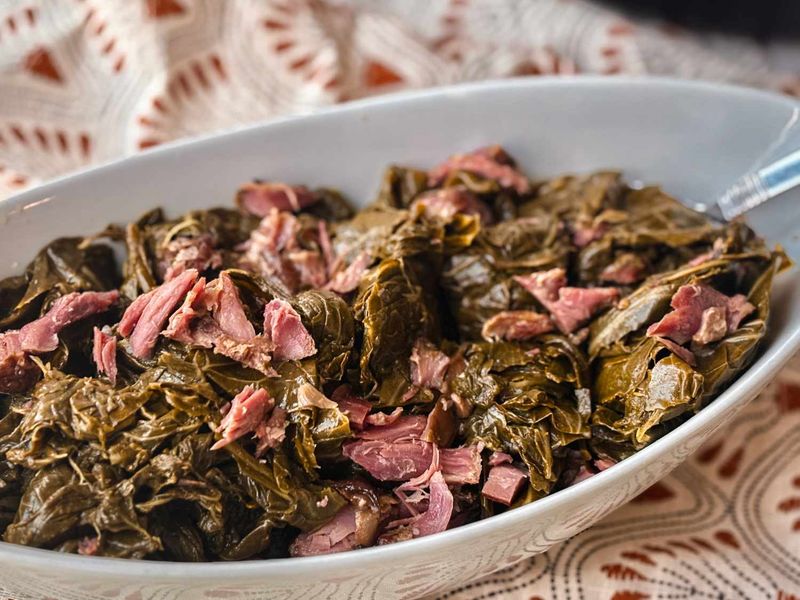
Collard Greens are a quintessential Southern dish, deeply rooted in African American culinary traditions. Known for their rich, savory flavor, these greens symbolize financial prosperity and good fortune, making them a staple on Juneteenth.
Historically, collard greens were grown in home gardens, providing nourishment and sustenance to families.
Today, they are often cooked with smoked meats, enhancing their flavor and connecting generations through shared recipes. This dish, steeped in history and culture, brings people together, serving as a nourishing reminder of home and heritage.
Fried Chicken

Fried Chicken is more than just a dish; it’s a cultural icon, representing comfort and community. Its crispy exterior and juicy interior make it a beloved choice at Juneteenth gatherings.
The tradition of frying chicken dates back to West African cooking methods, later adapted in the American South.
This dish embodies resilience and creativity, as enslaved people transformed simple ingredients into something extraordinary. Served hot and fresh, fried chicken continues to be a symbol of celebration, bringing people together in joyous feasts.
Barbecue Ribs

Barbecue Ribs hold a special place in American barbecue culture, epitomizing the spirit of gatherings and celebration. Their smoky, tender meat drenched in a savory sauce makes them a favorite at Juneteenth festivities.
The tradition of barbecuing dates back to the Caribbean and was embraced by African Americans in the Southern United States.
Ribs are often smoked for hours, allowing flavors to meld, creating a dish that is as much about the process as it is about the taste. They represent unity, bringing communities together around the grill.
Black-eyed Peas
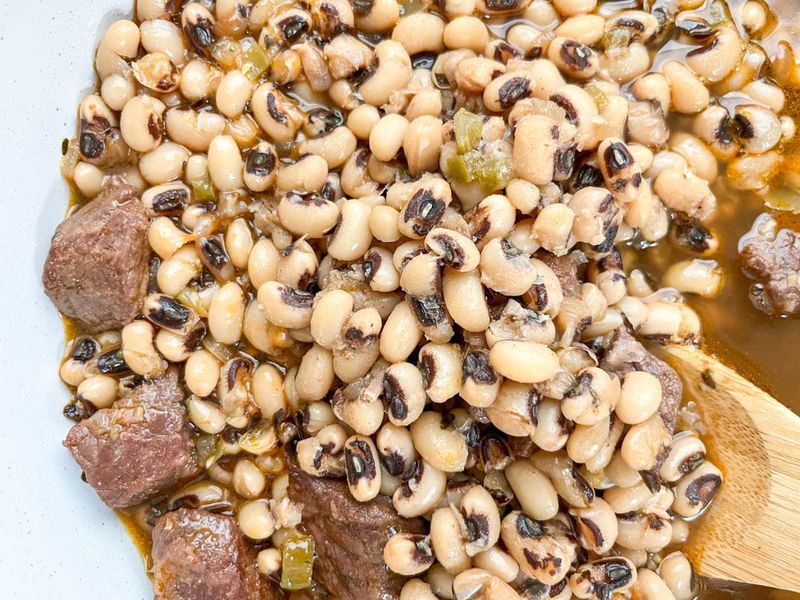
Black-eyed Peas are more than just legumes; they are a symbol of luck and prosperity. Traditionally eaten on New Year’s Day, they also find their place at Juneteenth celebrations.
These peas have West African origins, where they were a staple food.
Rich in history, they were brought to America during the transatlantic slave trade. Served with rice or collard greens, they form a hearty dish that sustains and comforts, bridging past and present, with each bite rooted in culture and hope.
Cornbread
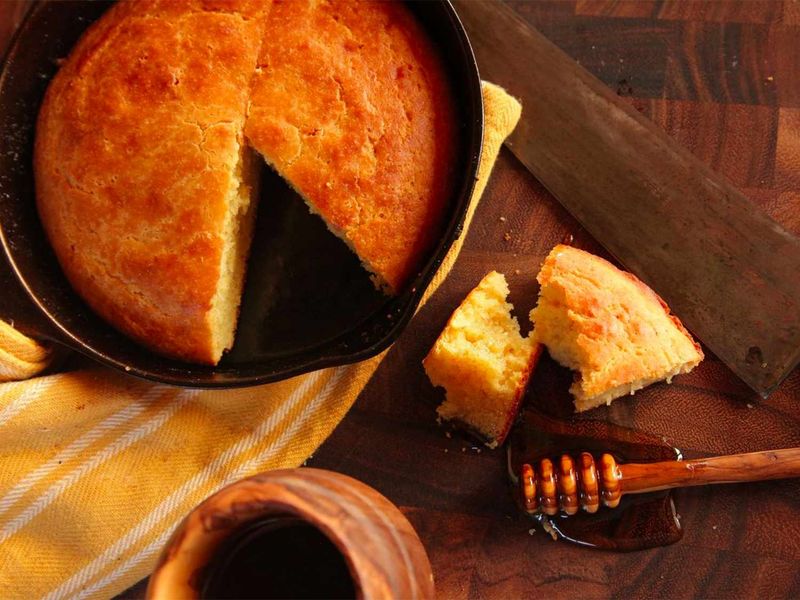
Cornbread, with its golden hue and crumbly texture, is a beloved staple in Southern cuisine. Its origins can be traced back to Native American cooking, later embraced by African American communities.
At Juneteenth celebrations, cornbread symbolizes sustenance and comfort.
It’s often served alongside hearty dishes like collard greens and black-eyed peas, enhancing their flavors with its slightly sweet taste. Cornbread’s simplicity is its charm, reflecting the resourcefulness of those who created it. This humble bread remains a cherished part of the culinary landscape, nourishing both body and spirit.
Watermelon
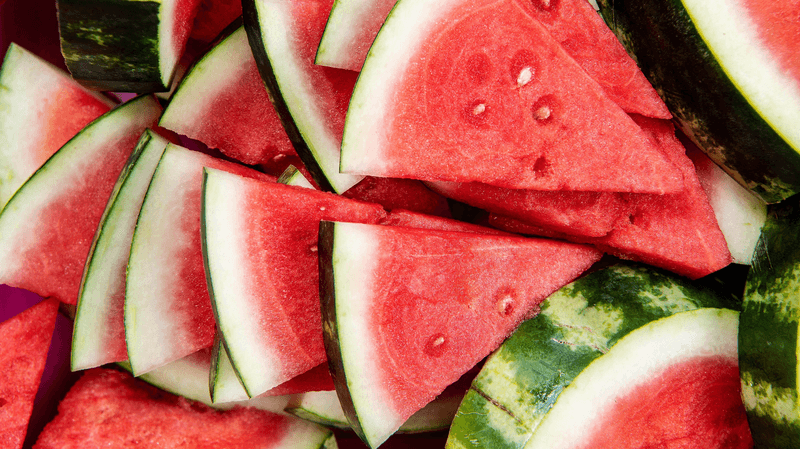
Watermelon, with its refreshing sweetness, is a symbol of summer and freedom. Historically, it was a crop grown by freed slaves, playing a significant role in their economic independence.
At Juneteenth events, watermelon is often served chilled, offering a sweet reprieve from the summer heat.
It has become more than just a fruit; it’s a representation of resilience and growth. The vibrant red flesh of the watermelon is a reminder of the joy and abundance that comes with freedom, making it an essential part of the celebration.
Sweet Potato Pie

Sweet Potato Pie is a dessert that embodies warmth and tradition. With its creamy filling and hints of cinnamon and nutmeg, it’s a beloved choice for many African American families.
This pie has its roots in African culinary practices, where sweet potatoes were often used in cooking.
At Juneteenth, sweet potato pie serves as a symbol of family and togetherness, with recipes passed down through generations. Each bite offers a taste of nostalgia and love, making it a cherished addition to the celebration spread.
Okra
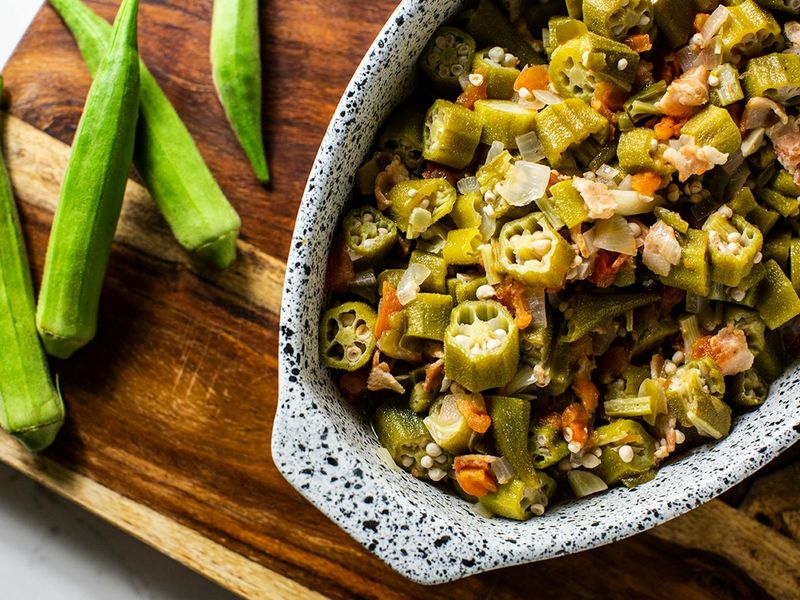
Okra, known for its distinct texture and flavor, is a staple in Southern cooking. Its origins trace back to Africa, where it was a common ingredient in traditional dishes.
At Juneteenth, okra is often prepared in stews or fried, showcasing its versatility and cultural significance.
This vegetable symbolizes survival and resourcefulness, as it was often grown in home gardens by enslaved individuals. Today, okra continues to connect generations through shared recipes and flavors, serving as a reminder of heritage and resilience.
Gumbo

Gumbo is a savory stew that represents the melting pot of cultures in Louisiana. With roots in African, French, and Spanish cuisines, it’s a dish that embodies diversity and community.
At Juneteenth celebrations, gumbo is often served as a symbol of unity and shared heritage.
Its rich broth, packed with meats and vegetables, offers a taste of comfort and tradition. Gumbo is more than just food; it’s a celebration of cultural fusion and the strength that comes from unity, delighting taste buds with every spoonful.
Pecan Pie

Pecan Pie is a quintessential Southern dessert, rich in flavor and history. With its sweet, nutty filling, it’s a favorite at family gatherings and celebrations like Juneteenth.
The pie’s origins are linked to Native American and French culinary traditions, later adapted in the Southern United States.
Pecan pie represents generosity and warmth, bringing people together over shared meals. Its delightful combination of crunchy pecans and gooey filling makes it a timeless treat, resonating with the spirit of hospitality and community.
Hot Links
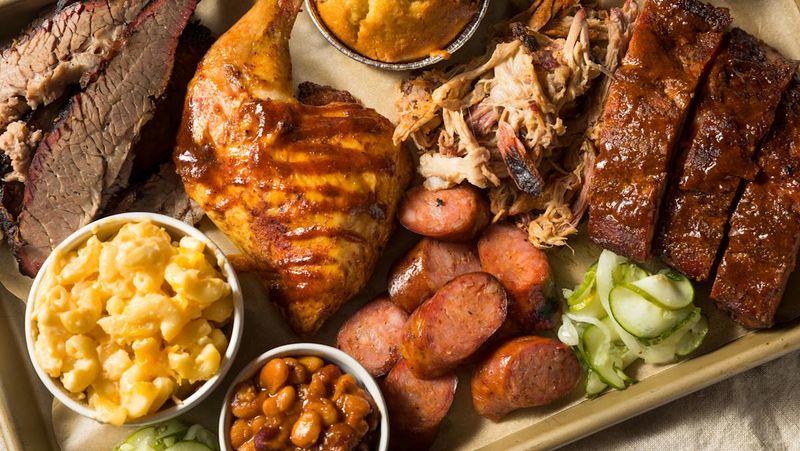
Hot Links, with their spicy, bold flavors, are a staple of Southern barbecue. These sausages, often smoked or grilled, bring a fiery zest to Juneteenth celebrations.
Originating from Texas, hot links are a testament to the vibrant barbecue tradition within African American communities.
They symbolize celebration and camaraderie, often enjoyed with family and friends. The robust flavors of hot links, paired with tangy sauces, create a memorable taste experience, embodying the spirit of gathering and joy.
Candied Yams

Candied Yams are a sweet, comforting dish that holds a special place in African American cuisine. With their tender texture and sugary glaze, they are a highlight at Juneteenth tables.
This dish has its roots in African cooking, where yams were a staple food.
Candied yams represent celebration and tradition, often prepared with family recipes passed down through generations. Their rich sweetness evokes memories of family gatherings and shared meals, making them a cherished part of the festive spread.
Hoppin’ John
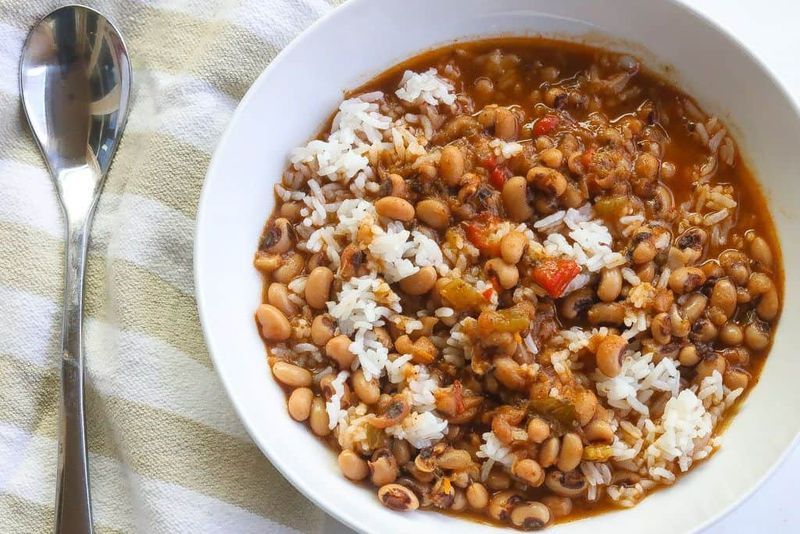
Hoppin’ John is a traditional dish of black-eyed peas and rice, steeped in Southern folklore. Known for bringing good luck, it’s a must-have at Juneteenth gatherings.
This dish has its origins in West African cuisine, adapted by enslaved Africans in the American South.
Hoppin’ John represents prosperity and the spirit of resourcefulness. Its simple ingredients and hearty flavors make it a timeless favorite, connecting generations through a shared culinary heritage.
Sweet Tea

Sweet Tea is more than a beverage in the South; it’s a way of life. Known for its sugary sweetness, it’s a staple at Juneteenth celebrations, quenching thirst and fostering relaxation.
Originating in the Southern United States, sweet tea embodies hospitality and tradition.
This refreshing drink, often flavored with lemon or mint, is a symbol of community and comfort. Whether served in mason jars or fine crystal, sweet tea brings people together, offering a moment of respite and connection.
Biscuits

Biscuits, with their buttery, flaky layers, are a beloved part of Southern cuisine. They are often featured at Juneteenth gatherings, symbolizing comfort and warmth.
Originating from British baking traditions, biscuits were adapted into the American South as a staple bread.
Served with honey or gravy, they add a touch of homeliness to any meal. These humble biscuits, with their tender crumb and rich flavor, bring back memories of family breakfasts and community dinners, embodying the spirit of Southern hospitality.
Peach Cobbler

Peach Cobbler is a dessert that captures the essence of Southern summers and hospitality. With its juicy peaches and crispy topping, it’s a must-have at Juneteenth celebrations.
This dish has its roots in British-American cooking, adapted by African Americans using local ingredients.
Peach cobbler represents warmth and generosity, often served as a sweet finish to festive meals. Its delightful combination of ripe fruits and buttery crust invites everyone to indulge, celebrating the abundance and joy of the season.
Rice Pudding
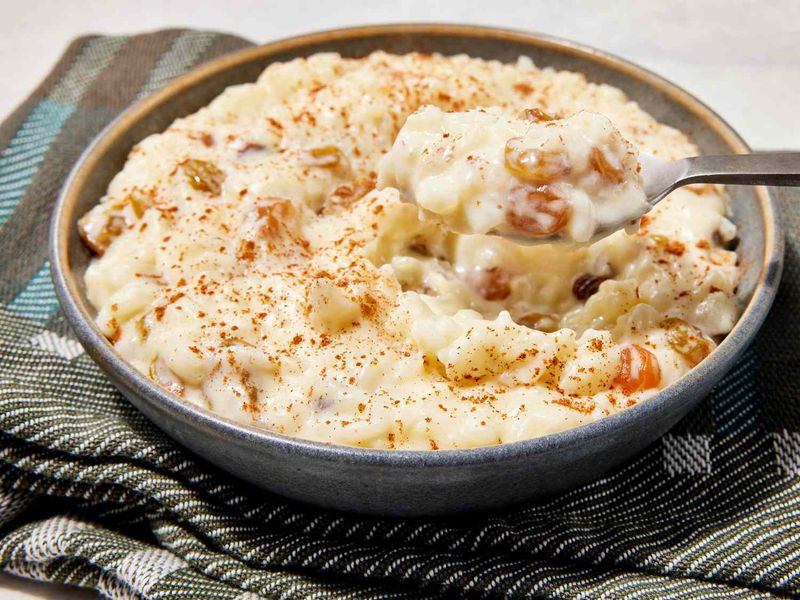
Rice Pudding is a comforting dish that spans various cultures, known for its creamy texture and subtle sweetness. At Juneteenth, it serves as a reminder of shared histories and culinary traditions.
This dish has global roots, with variations found in African, Asian, and European cuisines.
Rice pudding symbolizes unity and the blending of cultures, offering a taste of nostalgia and warmth. Its simplicity and richness make it a cherished dessert, bridging generations with its familiar flavors and comforting presence.
Corn on the Cob
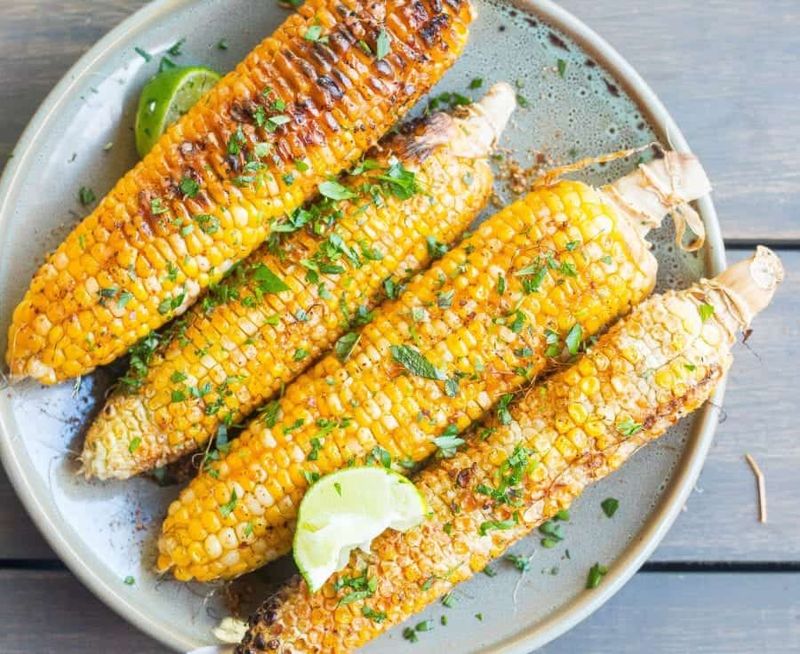
Corn on the Cob is a quintessential summer treat, often featured at Juneteenth barbecues. Its sweet, juicy kernels represent the bounty of the season and the joy of outdoor gatherings.
Originating from Native American agriculture, corn was later embraced by African American communities as a staple food.
Grilled or boiled, corn on the cob symbolizes community and celebration, shared among friends and family. Its simplicity and flavor make it a beloved addition to any festive meal, bringing smiles and satisfaction to all.
Leave a comment